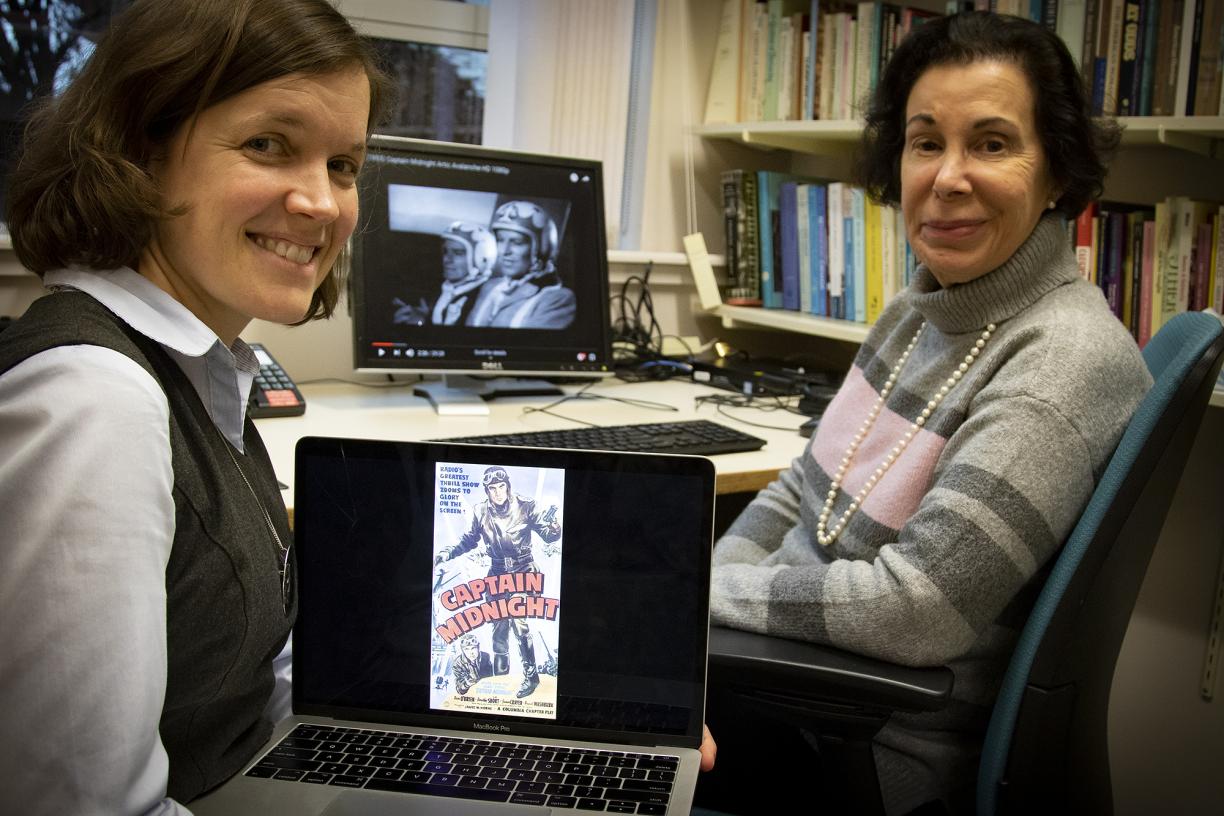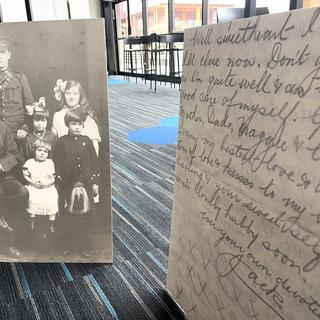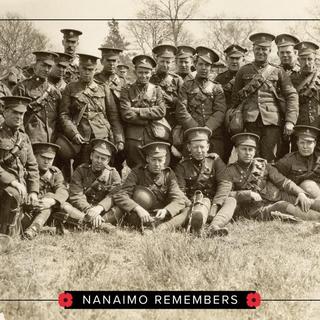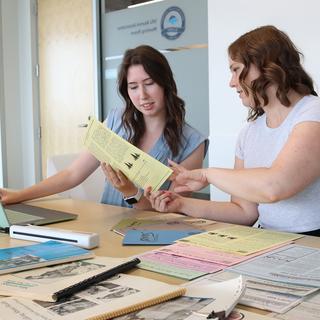Spring Arts and Humanities Colloquium Series allows faculty to share their scholarly and creative work.
Action-packed television shows in the 1950s entertained many children, but also served as a powerful Cold War propaganda tool that conveyed messages about security, ethnicity and gender, say VIU History professors Dr. Cheryl Krasnick Warsh and Dr. Katharine Rollwagen.
They’ll discuss how television shows such as Captain Midnight were used during the Cold War in both Canada and the United States to disseminate propaganda during their lecture Justice through Strength and Courage! Television and North American Cold War Childhoods in the 1950s on Friday, January 24. Their lecture kicks off the spring Arts and Humanities Colloquium Series and is one of three presentations taking place over the next three months.
“Captain Midnight used the scenarios of each episode to demonstrate external dangers to Western democracies,” says Krasnick Warsh. “For instance, the villains were often spies or criminals from Eastern Europe who were trying to steal American military secrets.”
Gender roles were clearly defined with males depicted as the wage earners and females contained in the domestic setting, Krasnick Warsh adds.
Rollwagen says pinpointing how these messages shaped young minds in the past is a tricky question for scholars because television programs are a part of our culture.
“They both reflect and shape our ideas, our values and our beliefs,” says Rollwagen. “Children in the 1950s were most certainly influenced by the ideas presented in programs like Captain Midnight. In interpreting these television programs, we think about the various different ways that children could have watched television.”
Dr. Marni Stanley, Interim Dean of the Faculty of Arts and Humanities, presents the second series lecture - Graphic Refugees: The Trauma of the Displaced Self - on February 7, as part of VIU’s Global Citizens’ Week. Stanley will explore how a comic book artist brings the lived turmoil of war and loss to the reader in a way that invites empathy.
For the final lecture, Sasha Koerbler, VIU Music professor and Dr. John LePage, a VIU English professor, present Mendelssohn’s Overture to A Midsummer Night’s Dream: Fantasy as the Bottom Line on March 13. They will discuss how William Shakespeare’s A Midsummer Night’s Dream inspired German composer Felix Mendelssohn, when he was 17-years-old, to compose a concert overture.
The Arts and Humanities Colloquium Series lectures take place from 10-11:30 am at VIU’s Malaspina Theatre, Building 310, on the Nanaimo campus. Doors open at 9:30 am and complimentary coffee and snacks are available.
-30-
MEDIA CONTACT:
Rachel Stern, Communications Officer, Vancouver Island University
P: 250.740.6560 l C: 250.618.0373 l E: Rachel.Stern@viu.ca | T: @VIUNews





